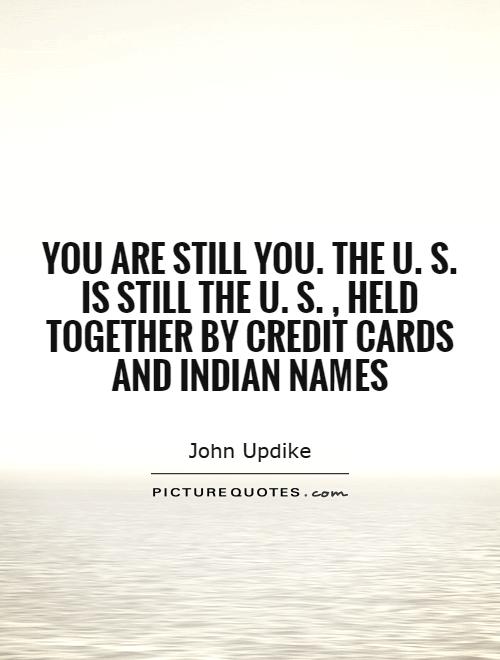You are still you. The U. S. is still the U. S., held together by credit cards and Indian names

You are still you. The U. S. is still the U. S., held together by credit cards and Indian names
John Updike, a prolific American author known for his keen observations of American society, often explored the complexities of identity and culture in his works. In the quote, “You are still you. The U. S. is still the U. S., held together by credit cards and Indian names,” Updike captures the essence of modern American life and the ways in which individuals navigate their identities within a rapidly changing society.The phrase “You are still you” speaks to the idea of personal identity and the struggle to maintain a sense of self in the face of external pressures and influences. In a world where consumerism and materialism often dictate our choices and behaviors, it can be easy to lose sight of who we truly are. Updike reminds us that despite the external trappings of modern life, our core identity remains unchanged.
The reference to the United States being “held together by credit cards and Indian names” is a poignant commentary on the dual nature of American society. On one hand, the country is built on a foundation of consumerism and capitalism, with credit cards serving as a symbol of our reliance on debt and material possessions. On the other hand, the mention of “Indian names” alludes to the indigenous peoples who inhabited this land long before the arrival of European settlers. Their presence serves as a reminder of the complex history and cultural diversity that make up the fabric of American society.












 Friendship Quotes
Friendship Quotes Love Quotes
Love Quotes Life Quotes
Life Quotes Funny Quotes
Funny Quotes Motivational Quotes
Motivational Quotes Inspirational Quotes
Inspirational Quotes